The potential market is worth hundreds of billions of USD if Vietnamese businesses can approach Japanese partners in a variety of industries, not just the information technology (IT) sector.
Sharp increase in revenue thanks to AI "I just met a representative of Fujinet Company based in Ho Chi Minh City, and learned that the production and business situation of this enterprise is still growing very well, maintaining a level of 20-30%. Where is the growth momentum when the number of employees only increases a little but labor productivity and revenue still increase like that?" Mr. An Ngoc Thao, Deputy General Secretary of the Vietnam Software and Information Technology Services Association (VINASA) told VietNamNet reporters on the sidelines of the Japan ICT Day 2024 event on the afternoon of December 2 in Hanoi . The answer from Fujinet representative is that, besides optimizing human resources, AI (artificial intelligence) application is the key", Fujinet once spent 3 years investing in an AI application system related to handwriting recognition (OCR) for Japanese customers, accepting to gain nothing, then this year sales exploded. Many Japanese partners came to place orders, including businesses in Vietnam and businesses in Japan. Among them were very large projects. 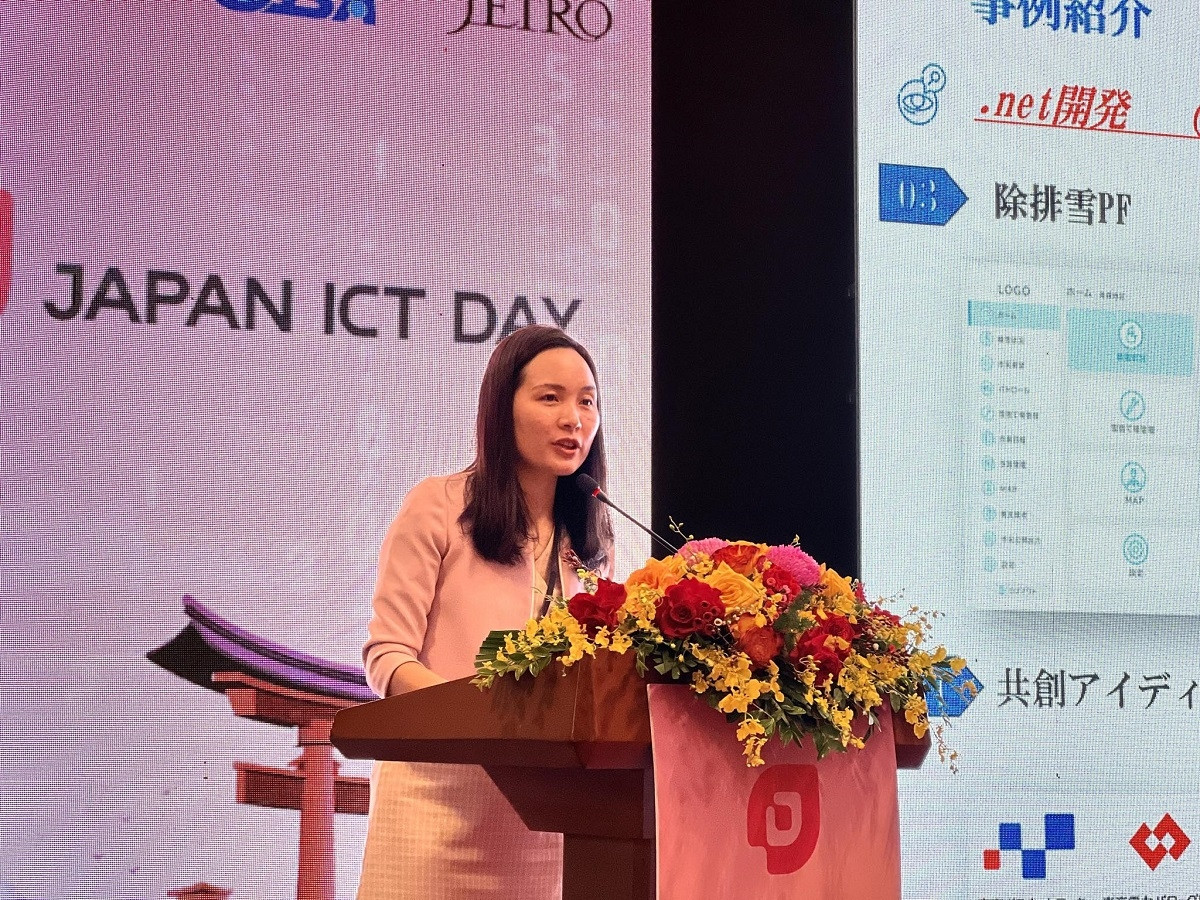

Ms. Nguyen Thi Anh, Head of Business Development Department, NTT e-MOI. Photo: Binh Minh
Core AI, invested in research and development by Fujinet team, can be applied in many different problems such as ID card recognition, text form recognition... "AI is also creating new vitality for BPO (business process outsourcing) services of many Vietnamese enterprises. After the initial "blooming" period, the number of BPO projects for Japan of Vietnamese enterprises had a period of contraction due to low return value while the investment resources were quite large. Recently, thanks to AI helping to reduce investment (machines do jobs such as handwriting recognition, image recognition, flower counting, fruit counting, defective product identification...), increasing profit margins, there is a trend of increasing BPO projects, but they are positioned as projects providing AI-related services, the value brought to businesses is much higher. Projects applying new technologies such as AI have quite high unit prices, which can reach about 4,000-5,000 USD/person/month", said Mr. Thao. know. After 8 years of implementing hundreds of projects for about 20 Japanese partners, NTT e-MOI Company is also keen to effectively exploit AI applications. Ms. Nguyen Thi Anh, Head of Business Development Department of NTT e-MOI shared with VietNamNet: “Blockchain (blockchain technology) is a technology trend of the past few years. The recent trend is the low-code no-code platform combined with AI technology. We have implemented many projects for customers in Japan based on the advantages of new technology to shorten development time, some projects only need 1/4 of the time to complete a software system. We identify the low-code no-code platform combined with AI applications as our main growth driver in the future with the goal of developing 150%/year”. What do Vietnamese businesses need to do to access the 200 billion USD market opportunity? Referring to the new needs of Japanese partners/markets, VINASA Deputy Secretary General quoted interesting information in the speech of Mr. Junya Kawamoto, Chairman of the JISA International Cooperation Committee, at Japan ICT Day 2024: Currently, not only the Japanese private sector is looking to Vietnam, but many organizations/units in the public sector are also looking to Vietnam because the skills of Vietnamese human resources have approached the expectations of Japan, while Japan is increasingly lacking in human resources. According to Mr. Junya Kawamoto, Japan's IT service industry will reach a revenue of 200 billion USD with 1.17 million employees by 2022. The Covid-19 pandemic has exposed the weaknesses of the old IT system in the public sector, prompting Japan to establish the Digital Agency and implement policies such as Government Cloud, DFFT (free flow of data with high trust)... In the private sector, the policy of the Ministry of Economy, Trade and Industry (METI) encourages digitalization through the DX Stocks program. However, the Japanese IT industry faces major challenges in terms of talent shortages, geopolitical risks, etc. Many Japanese enterprises expect to cooperate with Vietnamese enterprises in a number of areas such as human resource exchange and cross-border joint ventures. A recent survey by VINASA of 20 enterprises (including 10 enterprises with over 1,000 employees, 5 enterprises with 500-1,000 employees, and 5 enterprises with 200-500 employees) shows that revenue has increased steadily over the past 5 years, averaging 22-28% per year, with significant contributions from new areas of cooperation. In the past, Vietnamese IT enterprises only worked with Japanese IT enterprises, implementing problems that Japanese IT enterprises received from enterprises in many other industries. Recently, the number of enterprises from various Japanese industries placing orders directly with Vietnamese IT enterprises has increased. “The scale of Japan's IT outsourcing service market is estimated at about 30 billion USD/year. In recent years, Vietnamese enterprises have only won about 2 billion USD, the rest mainly belongs to Chinese enterprises and domestic Japanese enterprises. However, if we look at the whole Japanese ICT industry, the scale can be up to hundreds of billions of USD,” Mr. Thao noted. To increase opportunities to access the Japanese market, Mr. Thao recommended that Vietnamese enterprises and human resources need to prepare in-depth knowledge of other industries in Japan. Vietnamese enterprises need to invest in research and development of solutions for industries with high demand such as: manufacturing, automobile industry, banking and finance, insurance, healthcare... on new technology platforms such as cloud (cloud computing), AI, blockchain... At the same time, prepare a force of engineers with new technology capabilities, experts with in-depth knowledge of specialized fields, ready to research and develop new solutions with Japanese enterprises from the beginning. In the context that Vietnam is being positioned by partners from Japan and some other countries as one of the important partners, almost number 1, Vietnam has a fairly high geopolitical advantage, the Deputy General Secretary of VINASA expects Vietnamese enterprises to have a breakthrough growth in revenue when conquering the Japanese market. “By 2025, we may not be able to reach a growth rate of 50-100%, but by 2030, increasing 5-10 times compared to the present is not difficult if Vietnamese IT businesses and human resources are well prepared. There will be large Japanese projects requiring thousands, even several thousand people, Vietnamese businesses need to create a strong alliance in terms of human resources as well as technological solutions and experience in handling practical situations. When Japanese partners feel that Vietnamese businesses can accompany them in realizing their great aspirations, we will be able to win large projects, and then we can talk about the story of 5-10 times growth in about 5 years,” said Mr. Thao. The representative of NTT e-MOI also said that there is still a lot of room for Vietnamese IT businesses in the Japanese market. In particular, as the population is aging, Japan is increasingly lacking in labor, requiring more IT applications. For example, the nursing home sector is estimated to have potential for development in Japan in the next 30 years. The specific feature of this sector is providing services for the elderly, which cannot increase costs much, so it is necessary to apply IT. In the past 2-3 years, "digitalizing nursing home services" has become a keyword that has attracted great attention from the Japanese community. Nursing home is just one of the specific sectors in Japan that is required to apply IT to compensate for the shortage of human resources. This is a great opportunity for Vietnamese IT enterprises. “When cooperating with Japanese enterprises, it is necessary to conduct careful research to ensure that both sides share the same view on the future picture and can go the long way together. In particular, it is necessary to clarify the wishes and expectations of Japanese partners for the products/services of Vietnamese enterprises, the method of cooperation, assignment of tasks, as well as the profits achieved when the project is successful. Because many times Japanese customers make a small request but want Vietnamese enterprises to understand the broader implications,” Ms. Anh shared her experience for Vietnamese enterprises that want to reap “sweet fruit”. Source: https://vietnamnet.vn/doanh-thu-cua-dn-viet-tu-thi-truong-nhat-ban-co-the-tang-gap-10-trong-5-nam-toi-2348090.html













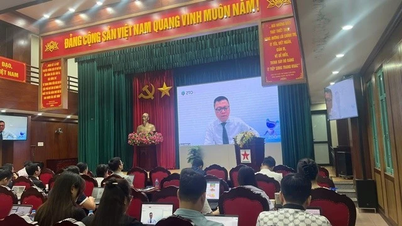

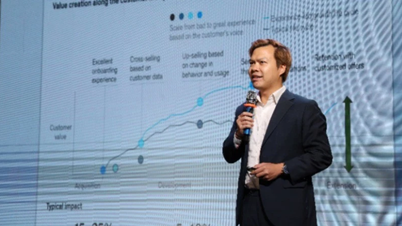





















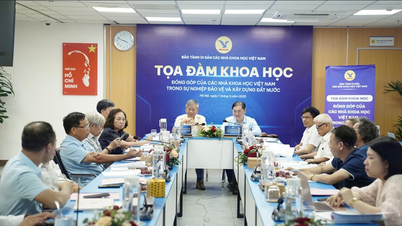





























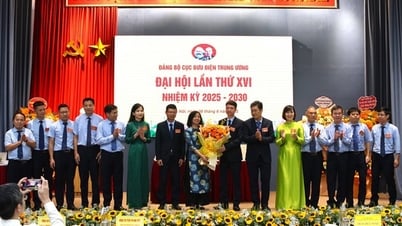






















![[OCOP REVIEW] Tu Duyen Syrup - The essence of herbs from the mountains and forests of Nhu Thanh](https://vphoto.vietnam.vn/thumb/402x226/vietnam/resource/IMAGE/2025/6/5/58ca32fce4ec44039e444fbfae7e75ec)




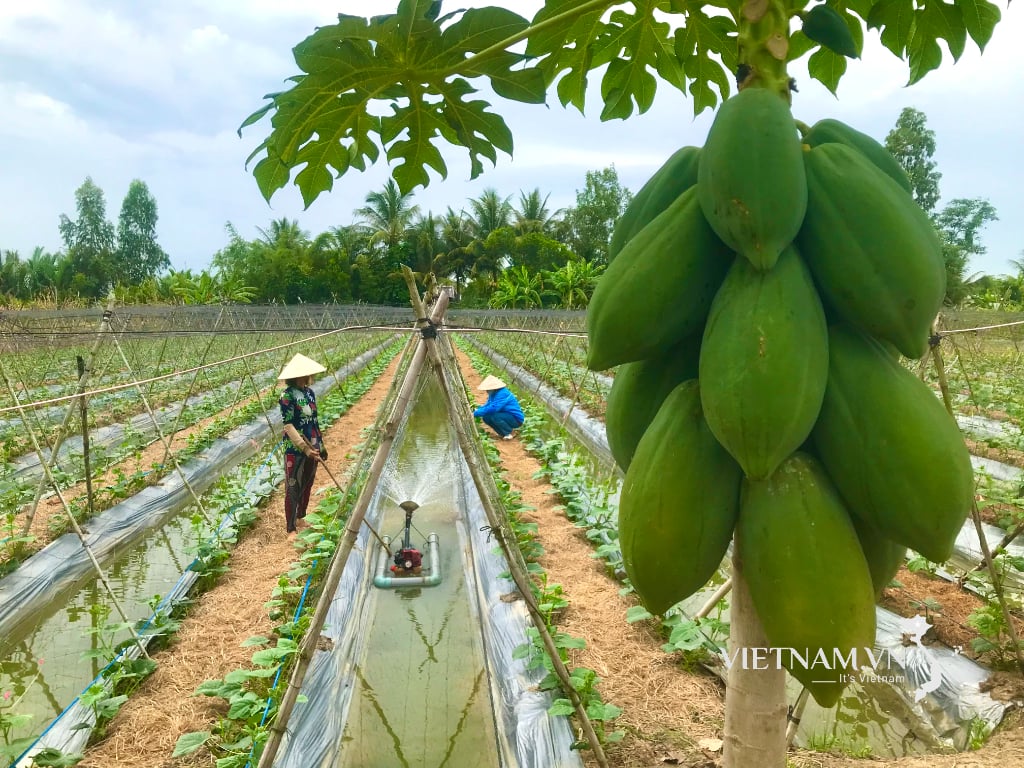


Comment (0)